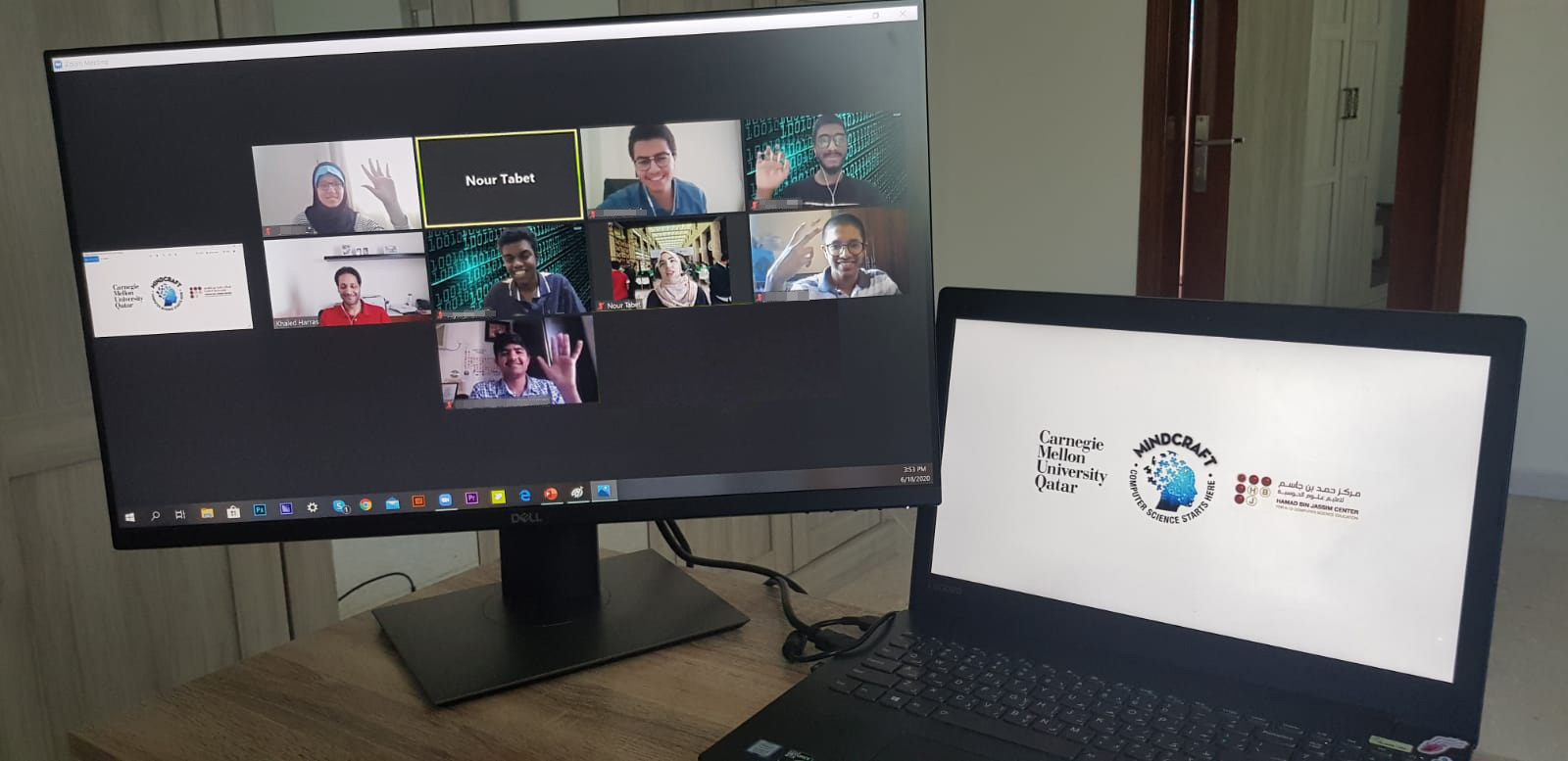CMU-Q Launches Virtual Computer Science Discovery Workshop Mindcraft Virtual for High School Students Introduces Computing, Inspires Career Paths
Friday, July 3, 2020Print this page.

Carnegie Mellon University in Qatar (CMU-Q) has launched its first virtual outreach program for high school students, using an online version of its popular Mindcraft program created in response to the COVID-19 pandemic.
"We have re-invented our outreach strategy in the wake of the COVID-19 pandemic," said Khaled Harras, computer science program director at CMU-Q and co-director of the Hamad Bin Jassim Center for K-12 Computer Science Education (HBJ Center). "For Mindcraft Virtual, we revamped one of our workshops to become more online-friendly, and we fully developed a new robotics programming workshop specifically for the virtual experience."
A collaboration between CMU-Q and the Jassim and Hamad Bin Jassim Charitable Foundation, the HBJ Center introduces school-aged children in Qatar to concepts and career paths in computer science.
Mindcraft, one of the center's initiatives, was created for high school students with a wide range of computer science backgrounds, from those with no experience at all to those who have strong skills in programming. It has introduced nearly 5,000 students to computer science since it began in 2016.
"Computer science is essential to many fields of study, as well as many existing and emerging industries," said Saeed Al-Hajri, the foundation's CEO. "With the pandemic and the move to remote work, we are seeing now more than ever how computing skills are critical for the next generation."
Harras sees computer science as a crucial enabling catalyst for nearly every discipline, including those in the sciences, humanities, engineering and medicine.
"Computational thinking is the new math of the 21st century," he said. "We hope that programs like Mindcraft will help young generations recognize this so they can remain competitive in future markets and economies," he said.
"We feel the conceptual portion of Mindcraft is especially important," said Nour Tabet, outreach coordinator and the facilitator of both the in-person and online workshops. "A lot of computer science work is about thinking through problems. The robotics section is fun and practical, but the conceptual activities really give students a key perspective on computer science."
When CMU-Q moved to remote teaching because of the pandemic, in-person Mindcraft workshops were also suspended.
To go virtual, the Mindcraft team carefully assessed various online tools and the format of the experience. After months of research, writing and testing, they launched the first Mindcraft Virtual for 12 students in late June. Tabet invited two students who had attended previous in-person workshops to attend so they could compare the experiences.
"I was so pleased that these students loved the virtual version. They of course missed being in person with the other students, but they really enjoyed the activities," she said.
Mindcraft Virtual will continue throughout the summer, and Harras and Tabet anticipate the online sessions will continue until the pandemic restrictions are lifted. In fact, this milestone opens the door for greater future impact and reachability that will no longer be limited by physical presence at the workshop.
Harras believes the Mindcraft experience is particularly welcome now, as pandemic restrictions are preventing many people from travelling.
"Mindcraft Virtual turned out better than I had personally imagined," he said. "I thought the long online hours would be tiring, but the students wanted more. One student shared with us that ‘this was my best 2 days in a long time, especially during this pandemic situation.’ It was heartwarming.”
To learn more about Mindcraft Virtual, visit the project's webpage.
Byron Spice | 412-268-9068 | bspice@cs.cmu.edu<br>Virginia Alvino Young | 412-268-8356 | vay@cmu.edu
